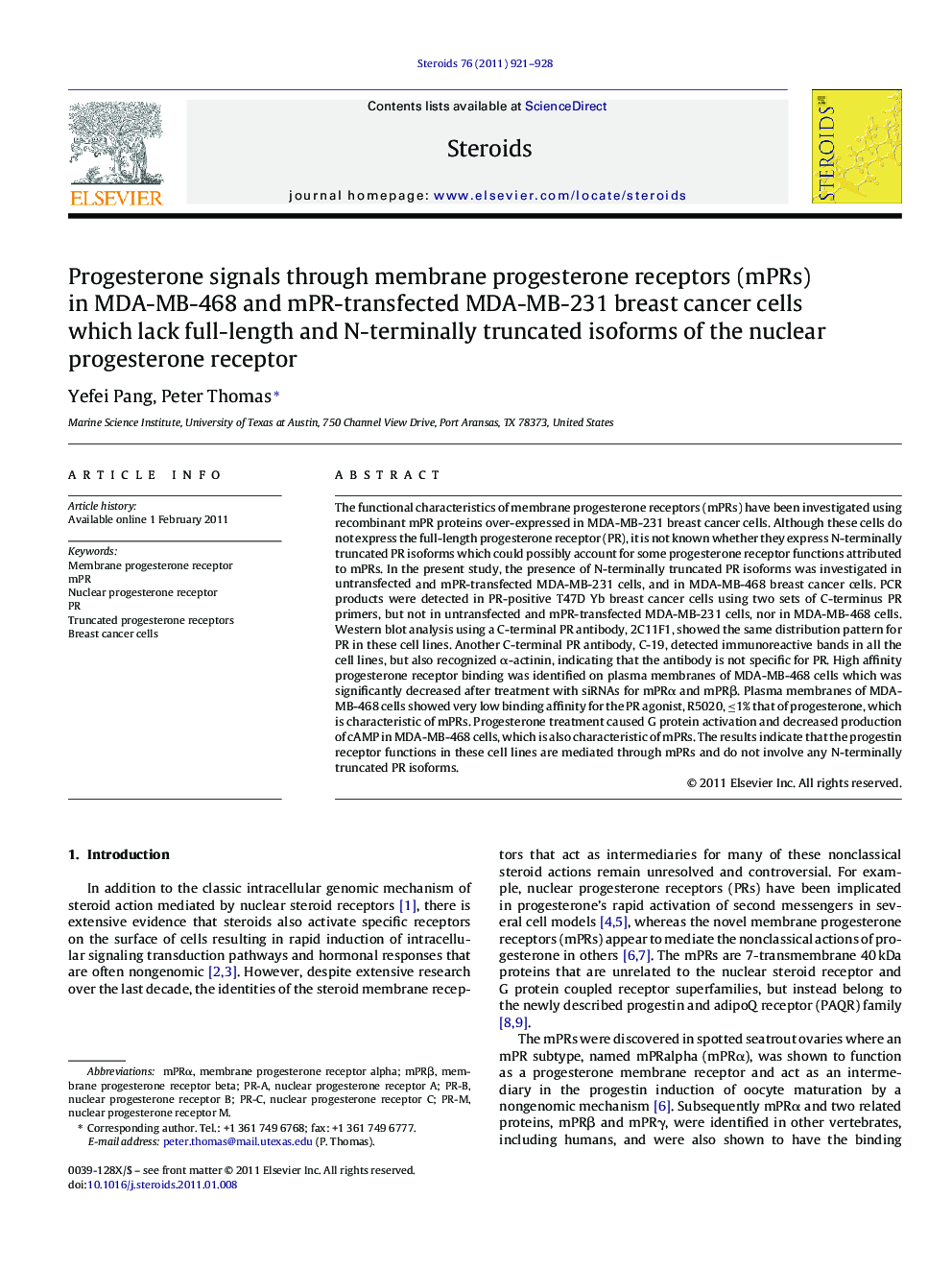| Article ID | Journal | Published Year | Pages | File Type |
|---|---|---|---|---|
| 2028555 | Steroids | 2011 | 8 Pages |
The functional characteristics of membrane progesterone receptors (mPRs) have been investigated using recombinant mPR proteins over-expressed in MDA-MB-231 breast cancer cells. Although these cells do not express the full-length progesterone receptor (PR), it is not known whether they express N-terminally truncated PR isoforms which could possibly account for some progesterone receptor functions attributed to mPRs. In the present study, the presence of N-terminally truncated PR isoforms was investigated in untransfected and mPR-transfected MDA-MB-231 cells, and in MDA-MB-468 breast cancer cells. PCR products were detected in PR-positive T47D Yb breast cancer cells using two sets of C-terminus PR primers, but not in untransfected and mPR-transfected MDA-MB-231 cells, nor in MDA-MB-468 cells. Western blot analysis using a C-terminal PR antibody, 2C11F1, showed the same distribution pattern for PR in these cell lines. Another C-terminal PR antibody, C-19, detected immunoreactive bands in all the cell lines, but also recognized α-actinin, indicating that the antibody is not specific for PR. High affinity progesterone receptor binding was identified on plasma membranes of MDA-MB-468 cells which was significantly decreased after treatment with siRNAs for mPRα and mPRβ. Plasma membranes of MDA-MB-468 cells showed very low binding affinity for the PR agonist, R5020, ≤1% that of progesterone, which is characteristic of mPRs. Progesterone treatment caused G protein activation and decreased production of cAMP in MDA-MB-468 cells, which is also characteristic of mPRs. The results indicate that the progestin receptor functions in these cell lines are mediated through mPRs and do not involve any N-terminally truncated PR isoforms.
Research highlights► MDA-MB-231, MDA-MB-468 cells do not express truncated progesterone receptor isoforms. ► Progesterone binding to MDA-MB-468 cells is through membrane progesterone receptors. ► G protein activation in MDA-MB-468 cells is through membrane progesterone receptors.
